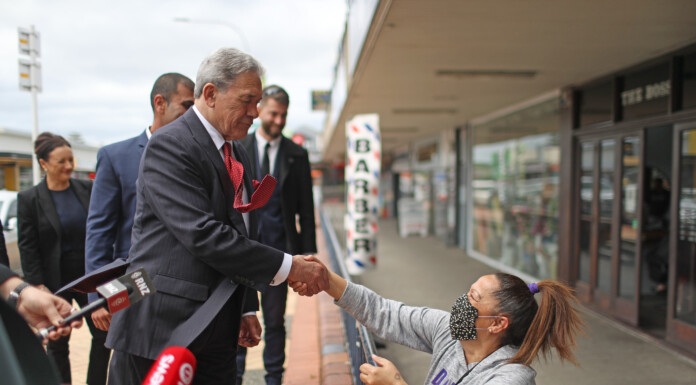Assuming National, Act, and NZ First can indeed hammer out a coalition agreement that offers the prospect of a “strong, stable government for New Zealanders”, it’ll be interesting to see if the “credible, fully independent Inquiry into New Zealand’s covid-19 response” that Winston Peters promised on the election trail will survive the inevitable compromise required to reach an agreement.
Given that Peters and his party arguably owe their resumed presence in Parliament to the votes they hoovered up from among those who remain disaffected by aspects of NZ’s pandemic response, it’s presumably a promise they’ll feel it’s politically difficult – if not impossible – to renege on if they have ambitions to remain a viable force beyond the next term [the way in which gun owners turned on NZ First after the party supported firearm reforms in the wake of the March 15 mosque massacre presumably remains top of mind].
However, there is a pretty strong argument to be made that there isn’t a need for an inquiry into New Zealand’s covid-19 response because, well, there’s already one underway.
If that’s something you’ve forgotten about, that’s quite likely due to the fact that, like much of the population, you’re suffering from a form of “pandemic fatigue” that means you’d really rather not think about the whole palaver anymore [even if – or perhaps because – we are reportedly currently in the thick of our fifth wave of covid-19 infections], or because the inquiry has been purposely flying under the radar up to this point, or a combination of the two.
The Royal Commission of Inquiry into covid-19 Lessons Learned – which has as its commissioners NZ-born, Melbourne-based epidemiologist Professor Tony Blakely, former Treasury head John Whitehead, and former government minister Hekia Parata – has been keeping its head down due to a perceived risk that the various issues it’s examining would get caught up in electioneering [even though you could argue that, given Labour enjoyed its sweeping 2020 election entirely off the back of the perception of its pandemic policy success at that point, that would’ve been entirely fair and appropriate].
Now the election is safely out of the way, a story about “the quiet inquiry” has popped up on RNZ, laying out what it’s been up to so far and the approach it’s taking.
Although a royal commission is considered the highest level of public inquiry, it’s worth noting much of the evidence presented to this inquiry will remain confidential.
That’s because the government that announced the inquiry in December last year decided against what might be considered the adversarial approach of a public hearing, as is currently unspooling in the United Kingdom.
Of course, the fact that the government that presided over our covid-19 response preferred an inquiry into that response that’s “future-focused” and not seeking to “lay blame or to dig out what went wrong” is not remotely similar to our American cousins’ folksy saying about how “turkeys don’t vote for Christmas”.
But while many, if not most, of us would like to continue to rest assured on our collective laurels that ours was the best little pandemic response in the world, based on comparisons with other countries that conveniently ignore a whole host of confounding variables, don’t we ultimately owe it to ourselves to actually find out for sure, with a totally transparent inquiry?


